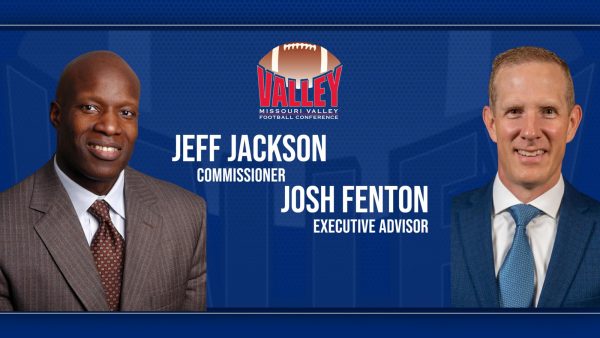Unreported assaults are common in college
September 25, 2012
Sexual assault is one of the most underreported crimes in the United States. According to the U.S. Department of Justice, between one in four and one in six women will be sexually assaulted in her lifetime. Most of those assaults will occur on women between the ages of 16 and 24.
Several research projects conducted for the U.S. Department of Justice have found that about 20 to 25 percent of women will be assaulted during their college career. And most of those assaults will occur during their first two years on campus. A study conducted by the National Institute for Justice found that as many as 35 sexual assaults could be committed for every 1,000 women on a college campus.
At SDSU, which in 2011 had 6,733 female students, the number of sexual assaults last year would have been about 192. However, between the years 2008, 2009 and 2010 — the years SDSU has made its crime statistics available on its website — only seven sexual assaults were reported.
Much of the research that has been conducted nationally regarding campus sexual assault suggests that the reported number of sexual assaults is vastly out of line with reality. There are several reasons for the discrepancy, many of which have to do with the attitude of society toward victims of sexual assault and the relationship of the victim to the attacker.
“I don’t think that any one college is different,” said UPD detective Cora Olson.
One of the biggest reasons sexual assault on campus goes unreported is that women often don’t know that what happened to them was a crime. A study conducted by the National Institute of Justice called “The Sexual Victimization of College Women” found that most women who didn’t report their assault thought that police wouldn’t find it serious enough to be a crime.
“It’s really difficult to know who to report, how to report, what to say and then also, because she became intoxicated, a lot of people will immediately blame the victim for the choices that she made,” said Krista Heeren-Graber, director of the South Dakota Network Against Family Violence and Sexual Assault.
Contrary to popular belief, the vast majority of sexual assaults are committed by someone known to the victim. The National Survey of College Women completed in 1999 found that as many as 93 percent of women who said they had been sexually assaulted also said they knew the person that committed the assault. According to Heeren-Graber, many victims don’t report their assault because they don’t want the person who assaulted them to get into trouble.
“If my good friend Jack and I have had a friendship and he’s a very good friend of mine, and one night I say no and we have sex and it’s not consensual, that doesn’t mean I don’t still care about him,” Heeren-Graber said.
Having a relationship with an attacker can be difficult to overcome for many victims.
“When the victim knows their attacker, they don’t see it coming,” Olson said. “It’s like a breach of trust, and when that breach of trust happens it can be a shock.”
Another reason victims don’t report sexual assault is that they don’t want their friends and family to know what happened to them.
“Other reasons would be the shame that someone would experience from the sexual assault,” Heeren-Graber said. “As it is uncomfortable for anyone to talk about a sexual experience that they’ve had … if you call the police you’re going to have to talk about a very uncomfortable sexual experience that you’ve had and you’re probably going to have to tell it more than one time.”
According to Heeren-Graber, shame plays a big role in why victims tend not to report their assault.
“I’ve had cases where the victim doesn’t want to talk about (their attack) because they blame themselves,” Olson said.
Still another reason sexual assaults go unreported is that victims feel they will get into trouble if they were drinking underage or using drugs. Another NIJ study, “Campus Sexual Assault: What Colleges and Universities Are Doing About It,” found that at half of the schools in the study that had campus policies on drug and alcohol use, administrators found those policies to be barriers to reporting.
“Some of what we have heard is that if (victims) are underage, they don’t want to get into trouble,” said Ashley Dahl, associate director of the Brookings Domestic Abuse Shelter.
That underscores a larger issue: the majority of sexual assaults occur when a victim has been drinking or using drugs. The most common type of sexual assault, according to the NIJ’s “Campus Sexual Assault” study, happened when the victim was intoxicated and unable to give consent or resist the assault. South Dakota state law says that an intoxicated person is incapable of giving consent.
Victims of sexual assault are more likely to suffer from mental health issues, attempt suicide, experience a drop in academic performance or drop out of college altogether. The NIJ Campus Sexual Assault study found that as many as four out of five victims of sexual assault suffer from some form of chronic mental illness like Post Traumatic Stress Disorder or depression.
“It’s very important that people know where they can call for assistance,” Heeren-Graber said. “They may not be ready to tell law enforcement yet … but where can they call and talk to someone.”
The NIJ studies list a number of ways that college campuses can encourage victims to report their assaults and help improve student safety in regard to sexual violence. The studies said that one of the most important things that can be done is making the campus policy on sexual assault reader-friendly and readily available. Colleges can also develop a comprehensive education program that discusses the realities of sexual violence and is given as early as possible in the academic year.
“It would be nice to have some sort of mandatory training for freshmen,” Olson said.
But according to Olson, training is not all that is needed.
“We live in a victim-blaming society, and you should never blame the victim,” Olson said. “We need to be a suspect-blaming society. The person who commits the crime is responsible.”





















